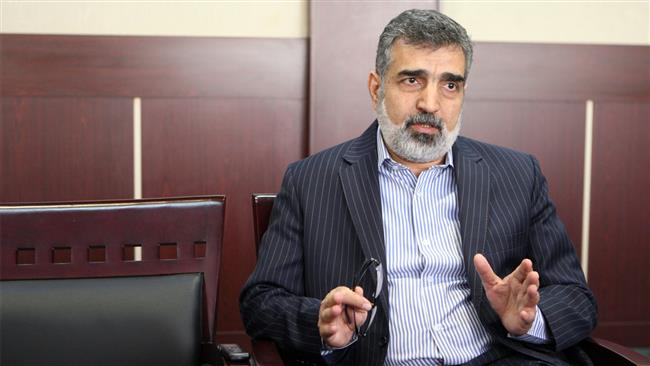“The Islamic Republic of Iran has fulfilled its obligations on heavy water stockpiles based on the JCPOA (the nuclear deal known as the Joint Comprehensive Plan of Action), and remains committed to it,” the spokesman for the Atomic Energy Organization of Iran (AEOI), Behrouz Kamalvandi, told IRIB on Friday.
Kamalvandi made the comments in reaction to a report by the International Atomic Energy Agency (IAEA) last week that claimed that Iran’s stocks of heavy water had slightly exceeded the 130-tonne level set out in the JCPOA.
IAEA Director General Yukiya Amano on Thursday chided Iran for exceeding the agreed limit on its stockpiles and said, “It is important that such situations should be avoided in future in order to maintain international confidence in the implementation.”
Iran and the five permanent members of the United Nations Security Council – the United States, France, Britain, Russia and China – plus Germany signed the JCPOA in July 2015 and started implementing it in January 2016.
Under the JCPOA, Iran undertook to put limitations on its nuclear program in exchange for the removal of nuclear-related sanctions imposed against Tehran.
The deal requires Iran’s storage of uranium enriched to up to 3.67 percent purity to stay below 300 kilograms. Tehran has also agreed to keep its heavy water stockpile below 130 metric tonnes.
“According to the JCPOA, we were required to offer on the international market any excess over 130 tonnes of heavy water and we have so far sold 70 tonnes,” Kamalvandi said.
He added, “Negotiations are under way with interested countries, the Europeans in particular,” to sell the rest.
The nuclear official emphasized that Iran would remain committed to its undertakings under the JCPOA on heavy water restrictions “so long as the JCPOA is in place.”
Last week, US State Department spokesman Mark Toner played down concerns about Iran exceeding the heavy water stockpile limit.
He said it was “important to note that Iran made no effort to hide this” and that he was “not sure whether that constitutes a formal violation.”
The AEOI head Ali Akbar Salehi said in October that the Islamic Republic had sold 32 tonnes of heavy water to the United States and delivered 38 tonnes of the nuclear substance to Russia.
“European firms, including German and French ones, seek to purchase Iran’s heavy water and we have expressed our readiness in this regard,” Salehi added.
Pointing to the increasing demand for heavy water worldwide, Salehi noted that Iran has become a major international supplier of the substance.
